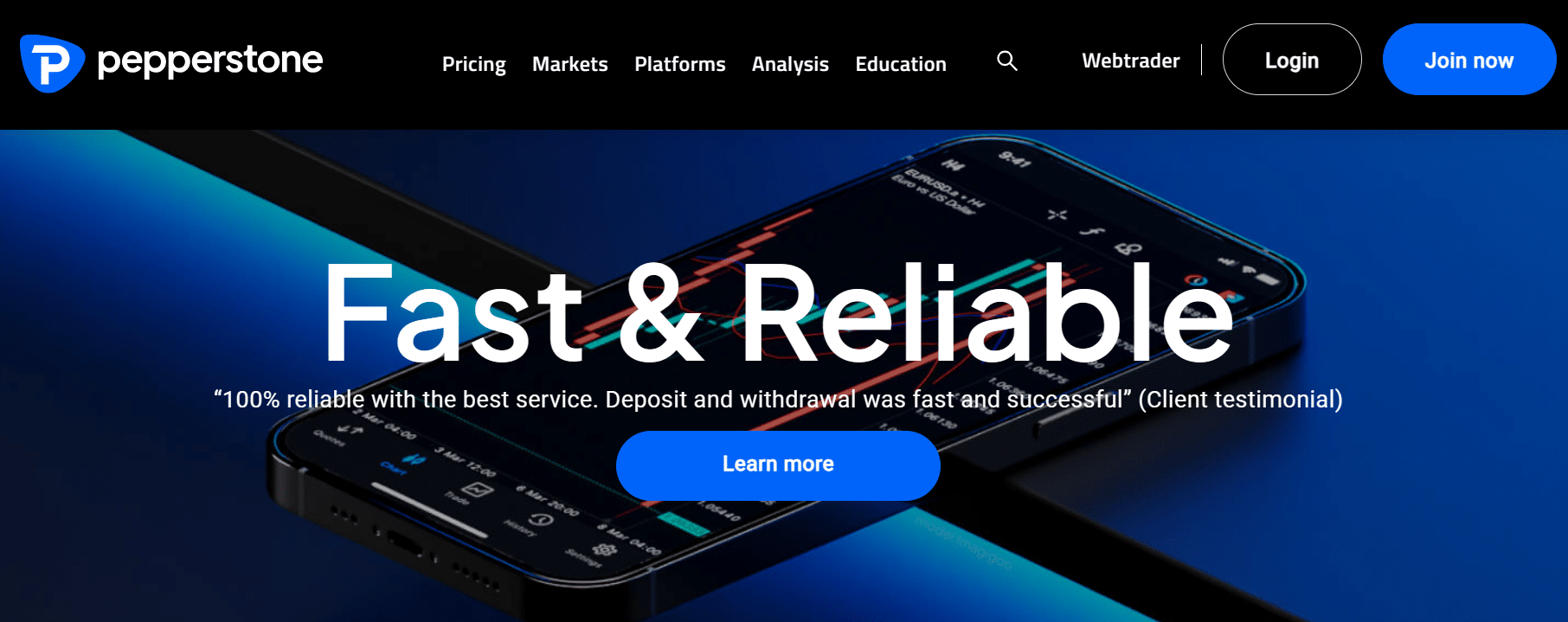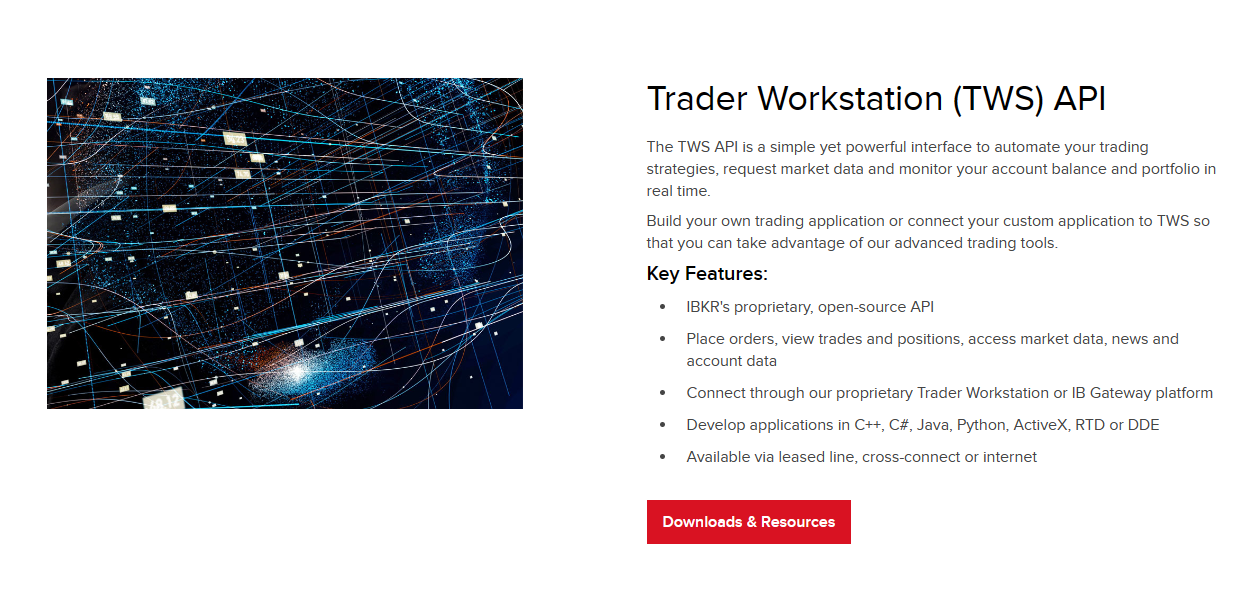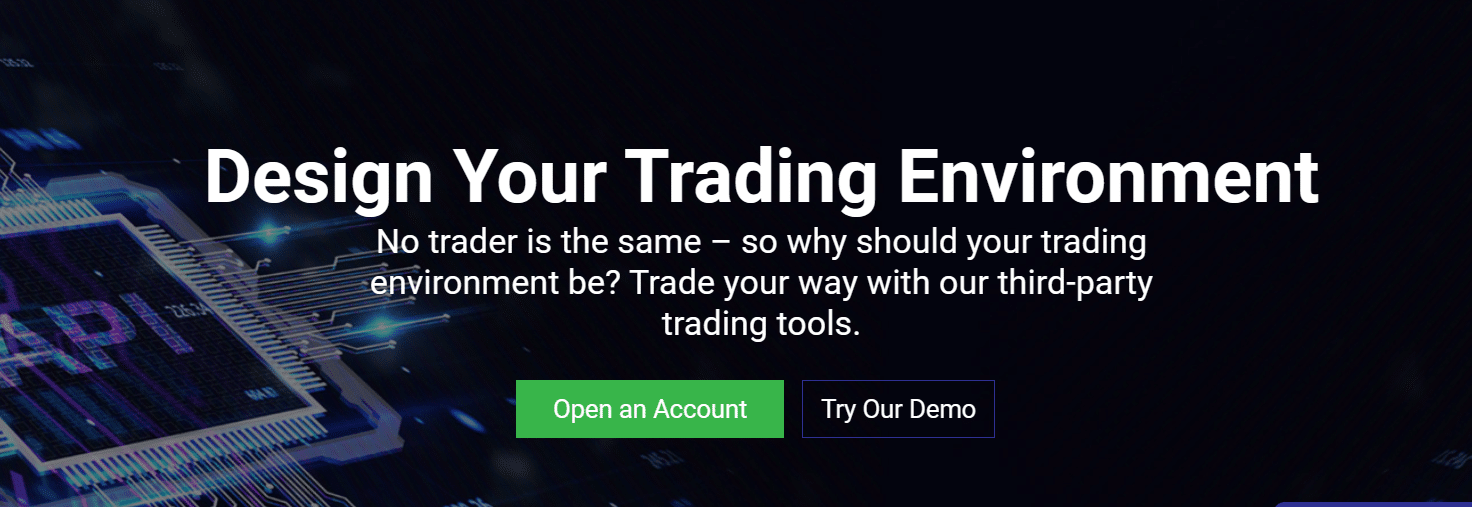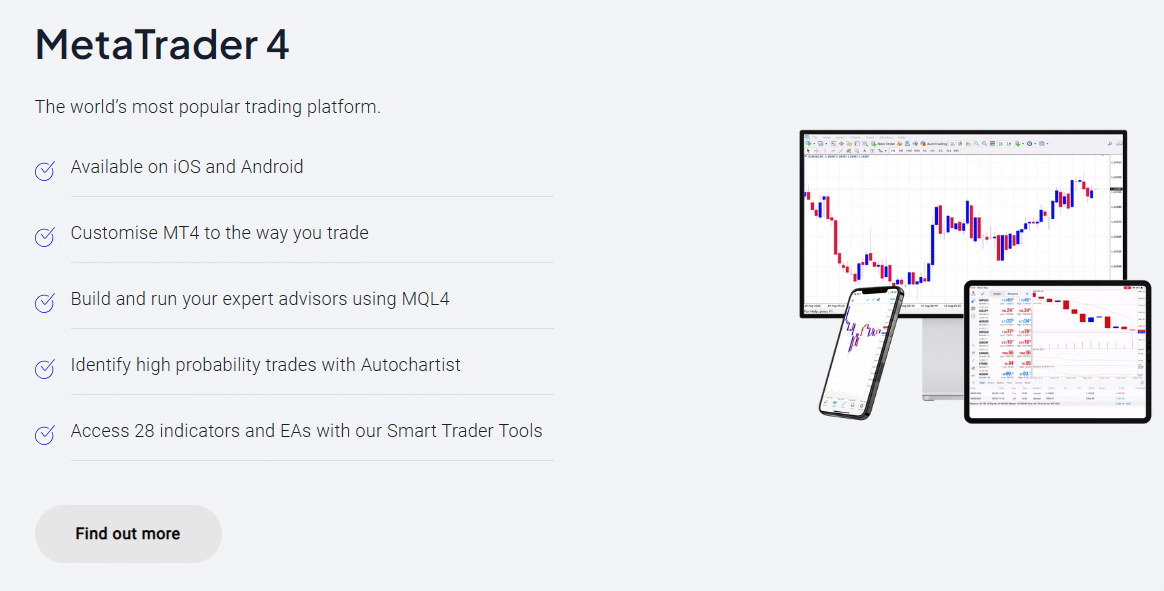The Best HFX Brokers for January 2026
Trading technology, and the financial markets, have evolved a long way since the days of the outcry trading system. With new technology and faster communications, a new form of trading has begun to emerge and gain popularity:
HFX trading or high-frequency trading. This refers to executing several hundreds of trades in a very short period to focus on quantity instead of quality and make small profits on each trade.
In this guide, we analyze the best HFX brokers and identify the characteristics that you must consider in order to choose the right broker for your needs.
-
-
Best HFX Trading Platforms in 2026
There are several brokers that provide the option to trade on an HFX basis. However, each of these brokers is suitable for a different type of trader and have their own pros and cons. Here is a list of the top HFX brokers, followed by a review of each of them:
- Pepperstone: Traders can do high frequency trading on Pepperstone through a variety of third party platforms including MT4. MT5. cTrader, MirrorTrader, RoboX and MyFXBook. The platform also offers competitive spreads, low commissions and a user-friendly mobile app.
- Interactive Brokers: Use algorithmic APIs to conduct high frequency trading on a reputable broker. Interactive brokers facilitates forex HFX through advanced algos that can be developed in the TWS. This platform is most suitable for experienced traders who understand how to set up algorithmic tools.
- Tickmill: Access global markets and fast order execution speeds. Tickmill supports HFX via MT$ or MT5. Traders can also access trading signals, options trading and a selection of APIs. Tickmill can be used to trade forex, stocks, commodities, bonds and indices.
There is no guarantee that you will make money with this provider. Proceed at your own risk..
What is HFX trading?
HFX trading (high frequency trading) is an advanced trading strategy that uses powerful software to execute a large quantity of trades in fractions of a second. In this situation, algorithms are used to automate the trading process so that trading is done at extremely high speeds based on a few set rules.
For example, a trader might develop an algorithm that places buy and sell orders on a variety of forex pairs whenever certain conditions are breached. Typically, the traders with the fastest execution speeds are more profitable than traders with slower execution speeds. In addition to the high speed of orders, HFT is also characterized by high turnover rates and order-to-trade ratios.
HFX is commonly used by forex traders however, it is a strategy that can be applied in any market where trades can be executed at high speeds. The method is typically employed by institutional investors who are equipped with the computational power required to facilitate HTF. Although retail investors can use the strategy, it is very difficult to employ on a smaller scale.
Best HFX Brokers and Trading Platforms Reviewed
After extensive research on all the HFX trading platforms available to traders and investors, we have come up with the top 10 platforms that you can use. Each of these platforms has been discussed below in detail.
1. Pepperstone – HFX trading platform with low fees and a good selection of charting tools
Pepperstone is a very popular HFX broker that has over 500,000 users worldwide. It is a no-dealing desk broker and offers both ECN and STP accounts by providing access to some of the top liquidity providers in the industry, such as banks.
It provides access to over 800 instruments and forex pairs through a range of advanced trading platforms. When you choose to set up an account with Pepperstone, you have the option to choose which platform you wish to trade through, based on your level of experience and trading requirements.
This includes the MT4 and MT5 platforms alongside other niche platforms and trading tools such as cTrader, MyFXBook, MirrorTrader, and RoboX.
They offer two types of accounts, the Razor and the Standard accounts. The Razor, as the name suggests, is an ideal trading account for those looking to scalp trade, whereas the Standard is much more suitable for all other trading requirements.
Pepperstone is popular amongst high frequency traders because spreads start at 0.01 pips which make it a low-cost option. The platform also offers a range of charting tools and indicators that can be used to develop advanced HFX trading strategies.
Pros:
- Pips starting at 0.01 and low commissions.
- More than 800 instruments are available to trade including 90+ forex pairs.
- Pepperstone supports ECN and STP accounts which are ideal for HFX traders.
- The platform offers fats transactions to support high volume trading.
Cons:
- The broker offers limited customer support options and it can take a while for the team to answer your questions.
- Pepperstone lacks risk management tools.
There is no guarantee that you will make money with this provider. Proceed at your own risk..
2. Interactive Brokers – Use APIs and algo models to conduct HFX trading on a trusted platform
Interactive Brokers is a well-known online trading platform that caters towards traditional trading strategies as well as HFX.
To conduct high frequency trading on the platform, you will need to go thorough a third-party charting tools such as MT4 or MT5. Experts spend time using HFX strategies to develop APIs that can be plugged into the platform and used to place orders on your behalf. Interactive Brokers offers several platforms for experts to create these APIs, test them and apply the, to their live trading.
Interactive Brokers is catered towards experienced HFX traders who have an understanding of APIs. The platforms provides a comprehensive guide about training algo models for HFX and it is possible to test each model before trading live conditions.
IBKR offers forex, stocks, ETFs, futures, options, and spot trading. The platform caters to a range of trading styles and offers a good selection of resources that can be used to improve your skills and knowledge. Another stand out feature of the broker is that it provides users with a demo account that allows them to practice trading in a risk-free environment.
Pros:
- 0% commissions for stocks and ETFs when trading using the Lite account.
- FX spreads start at 0.08 pips.
- Experts can build their own HFX APIs according to their goals using the TWS platform.
- Interactive Brokers offers a free demo account that can be used to test the platform before putting any money at risk.
Cons:
- Interactive Brokers HFX is geared towards experts who have experience in developing APIs.
- The trading interface is less user-friendly than other options which may not be suitable for beginners.
- The minimum trade amount is quite high at 100,000 currency base units.
3. Tickmill – Trade HFX through APIs and use signals to guide trading decisions
Tickmill is a forex and CFD trading platform that supports HFX through third-party trading tools such as MT4, MT5, Agena Trader, Bookmap and it’s native CQG platform. Traders can develop their own APIs or use ready-made options that are available through the platform.
As well as providing traders with a good range of charting tools, Tickmill offers some of the fastest execution times on the market. The average execution time is 0.20 ms which is ideal for placing numerous trades in a short time frame.
Tickmill is also a suitable platform for Expert Advisors, scalping, hedging and arbitrage trading. The broker also provides professionals trading accounts for advanced traders who are looking for greater autonomy on the platform.
Pros:
- Spreads start at 0 pips.
- Tickmill offers the most extensive range of charting tools that we found during our research.
- Low non-trading fees.
- Tickmill is regulated by the FCA in the UK.
- The platforms offers fast transaction speeds from 0.2 seconds.
Cons:
- Tickmill lacks market insight and live data.
- The platform is relatively outdated.
- There are no social trading or copy trading features available.
HFX Trading Brokers Comparison Table
HFX Feature Pepperstone Interactive Brokers Tickmill Minimum spread 1.00 pips 0.08 pips 0 pips Average transaction time 0.35ms 0.29ms 0.2ms Third-party charting tools MT4, MT5 TradingView, cTrader, Cpaitalise.ai IBKR TWS, IBKR GlobalTrader, IBKR Mobile MetaTrader 5, MetaTrader 4, Trading instruments Forex, commodities, indices, cryptos ETFs Forex, stocks, options, futures, ETFs Forex, stock indices, commodities, bonds, stocks Minimum trade size 0.01 lots 100,000 units of base currency 0.01 lots How Does High-Frequency Trading Work?
High frequency traders use algorithmic software to facilitate high-speed, high-volume trading. The software is able to transact a large volume of trades quickly so that millions or orders can be executed within seconds.
Traders choose when to run the software, conducting market analysis before deciding on the most optimal conditions to trade.
As the software places trades, profits are accumulated in the traders’ account. Profits are usually withdrawn when the trading session has finished. Traders must leave funds in their account during the process so that the software can seamlessly execute trades.
How Much Money Do You Need for High-Frequency Trading?
The exact amount of capital that you need to start HFX will depend on the platform that you use. However, most platforms require a large deposit to support this type of trading.
This is because HFX algorithms need to be able to place millions of trades within seconds which means that you will need to have enough money in your account to fund each trade. Our recommended broker PepperStone requires a minimum deposit of $200 to start HFX. The regular trading account does not have a minimum deposit requirement.
What to Look for When Choosing a High-Frequency Trading Broker?
There are several things that you should keep in mind while trying to select the right HFX platform for your needs. Your choice of broker has a direct and proportionate effect on how successful your trading strategy will be, and therefore you need to look at a variety of factors before deciding on a particular broker.
A list of the various factors that deserve some consideration has been discussed below.
✔️ Trading commission
A commission is a flat fee that you pay for each trade order that you place. Commissions are usually volume-based, and the greater your trading volume, the lower the commissions that you will have to pay.
Different brokers offer spreads and commissions, and some brokers even offer a combination of both. While both spreads and commissions have their own advantages and disadvantages, commissions are usually preferred by HFX traders because they are fixed, accountable, and quite low if a certain trading volume is exceeded.
When selecting a broker that charges commissions, you should always check if this broker offers rebates or discounts. Since HFX trading strategies usually involve large volumes, it will be easy for you to meet the threshold and be eligible for rebates, if any.
✔️ Spreads
Spreads charged by platforms can either be fixed or variable. Fixed spreads stay constant throughout the trading day, whereas variable spreads vary during the trading day based on volatility and liquidity in the market. It is important for you to know what the spread for your broker is, and whether it is fixed or variable.
Different brokers have largely different spreads depending on the instruments you wish to trade, and spreads can vary even among one particular asset class.
✔️ Assets
The next factor to consider before trading through an HFX trading platform is the variety of assets that it offers. Even if you are only going to be trading one or two asset classes, it is always advisable for you to trade on an HFX trading brokerage platform that provides variety in terms of the asset classes. This will be useful later if you choose to expand your trading horizons and begin trading other assets too.
✔️ Trading tools & features
HFX trading platforms should provide users with a selections of tools and features that facilitate different strategies and help traders to navigate the market. Here are a few examples of helpful features to look out for that are useful when HFT:
- Fractional Ownership and Low Minimums
- A selection of automated trading tools
- Variety of order types.
- Educational resources and guidance
- Demo trading account
- 24/7 customer service options
What Are The Risks of High Frequency Trading?
It is estimated that around 50% of US stock trading is HFT. The advanced trading strategy has become increasingly popular amongst institutional investors who want to profit from small price movements. High frequency trading can be beneficial to the markets by providing increased liquidity which minimizes bid-ask spreads.
However, HFX also comes with a number of drawbacks that investors should be aware of before signing up to a platform.
Increased market volatility
One of the biggest concerns that surrounds high frequency trading is increased market volatility. When a large number of unidirectional trades are placed at the same time, it can create significant price movement.
A volatile market can make it more difficult for traders to conduct analysis and make predictions about market movement. Volatile conditions are linked to increased trading risk.
High costs
Another drawback that may effect investors more directly is the high costs that are involved in HFT.
High frequency trading software isn’t cheap and accounts must be funded sufficiently to be able to place a high volume of trades. For this reason, HFX is mainly used by institutional investors who are able to invest large amounts of capital into the markets.
Market manipulation
There are concerns that HFT technologies can manipulate market conditions to favor the trades that they place. This is done through ‘spoofing‘ or ‘layering’ which involves cancelling an offer before it is executed.
Spoofing can make it difficult for non-HFT place profitable trades and is considered unethical.
Our Conclusion on HFT brokers
HFX brokers facilitate the execution of trades in high volumes at fast speeds so that investors can place millions of order within seconds.
There are several important considerations to keep in mind when trading through an HFX trader, which have all been discussed. These include general considerations about the platform, such as the trading fees and the asset class list. But they also include the trading tools that the platform provides, such as their analysis capabilities and the different order types that can be placed through the platform.
In conclusion, if you’re looking to get started with an HFX trading platform, the best option for you is PepperStone. It is one of the most reliable and safe trading platforms for investors and traders of all experience levels, and it also contains among the largest variety of asset classes to trade on.
Their trading platform and its functionalities are almost unparalleled in the industry, and it also has low spreads and fees on the trading of stocks and forex pairs.
There is no guarantee that you will make money with this provider. Proceed at your own risk..
FAQs
Where can I trade HFX?
HFX trading requires specialist software. However, it is possible to use this software through a reputable exchange such as PepperStone or Interactive Brokers. In most cases, you will be direct to a third-party charting tool which will be able to facilitate HFX trading strategies.
Is HFX worth it?
High frequency trading can be profitable for institutional investors who have large amounts of capital and the best software. However, this trading strategy is extremely risky for retail investors
Is HFX regulated?
Some High frequency trading platforms are regulated by financial authorities and must adhere to regulatory compliance.
Is HFX trading gambling?
High frequency trading uses advanced algorithms to conduct analysis and place trades based on price predictions. It is not gambling because trades are not placed blindly and there is no ‘house’ involved.
References:
- https://www.ft.com/video/6e7cd4df-18c2-440a-8b20-01ed789d556d
- https://www.nasdaq.com/glossary/h/high-frequency-trading
- https://www.fca.org.uk/publications/research-articles/role-high-frequency-traders-fx-markets
- https://en.wikipedia.org/wiki/High-frequency_trading
- https://www.quora.com/What-is-HFX-trading
Nishit Kumar Finance Writer and Analyst
View all posts by Nishit KumarNishit is a NGL Trader Analyst at Akari Trading. He has also worked as an analyst for Morgan Stanley and Onyx Commodities.
Before starting his career in finance, Nishit studied at the University of Warick where he was an active member of the Hedge Fund society. Due to his qualifications and experience, Nishit is considered an industry expert and enjoys writing content that could help traders to make informed decisions.
As well as writing, Nishit worked as Associate Editor for The Economic Transcript until 2021. He has also written for Newsweek and has good knowledge of current events that could affect the financial markets.
Crypto promotions on this site do not comply with the UK Financial Promotions Regime and is not intended for UK consumers.
WARNING: The content on this site should not be considered investment advice and we are not authorised to provide investment advice. Nothing on this website is an endorsement or recommendation of a particular trading strategy or investment decision. The information on this website is general in nature, so you must consider the information in light of your objectives, financial situation and needs. Investing is speculative. When investing your capital is at risk. This site is not intended for use in jurisdictions in which the trading or investments described are prohibited and should only be used by such persons and in such ways as are legally permitted. Your investment may not qualify for investor protection in your country or state of residence, so please conduct your own due diligence or obtain advice where necessary. This website is free for you to use but we may receive a commission from the companies we feature on this site.
Trading is risky and you might lose part, or all your capital invested. Information provided is for informational and educational purposes only and does not represent any type of financial advice and/or investment recommendation.
By continuing to use this website you agree to our terms and conditions and privacy policy. Registered Company number: 103525© tradingplatforms.com All Rights Reserved 2024
We use cookies to ensure that we give you the best experience on our website. If you continue to use this site we will assume that you are happy with it.Scroll Up






